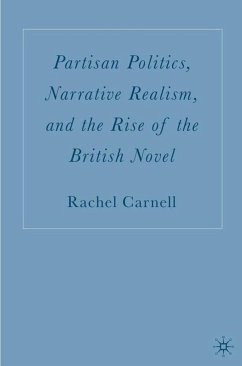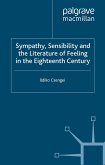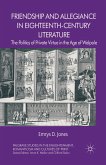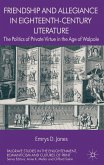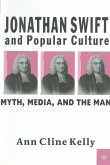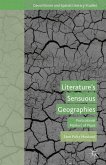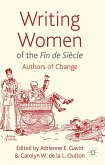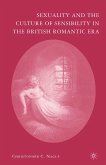This book considers why narrative realism in literature is seen as a 'full account' of 'real life' and the individual self. Unconventionally, Carnell shows that the formal conventions of narrative realism emerged in the seventeenth century in response to an explosion of partisan writings that put into play competing versions of political selfhood.
Hinweis: Dieser Artikel kann nur an eine deutsche Lieferadresse ausgeliefert werden.
Hinweis: Dieser Artikel kann nur an eine deutsche Lieferadresse ausgeliefert werden.
'This book considers how the narrative and formal conventions that have come to be known as 'narrative realism' or formal realism are, in fact, implicitly and strategically political in their initial deployment. The study reminds us that both formal analysis and political readings should not only be re-introduced to the consideration of the novel, but can also be read as mutually informing. As Carnell effectively articulates, we now naturalize a split between the political and the literary which would not have existed for an eighteenth century reader. Indeed, eighteenth century political discourse, in a period without our mania for generic classifications, could have been active in shaping notions of human characteristics or 'realism' - as active, argues Carnell, as the novel itself. This is a very thoughtful and cogently argued study that brings new perspectives and insights to canonical and also much less well-known fictional texts of the period.' - Catherine Ingrassia, Professor of English, Virginia Commonwealth University
"Partisan Politics allows us to read for the first time former political hacks turned novelists, such as Fielding and Defoe, with regard to their earlier work. No longer are they to be understood as writers who yearned to be novelists, but who could only manage it in old age. Their political writings are here seen as a logical grounding for their turn to the novel form. Underpinning Carnell's argument is the idea that in the developing texts, the aesthetics on the 'realistic' character were always set against a political caricature of a member of the hated opposition: a type made as horrible as possible, and deriving from the political pamphlet. Carnell argues from a host of examples that prose writing in the period was never a taxonomy of species, but always consumed by the contemporary audience as a continuum of similar types of writing, from hard political comment to the more aesthetic novel. Thus, the pamphlet must be analysed in terms of the aesthetics of the good, the bad, and the ugly they describe, much as the novel must be analysed in terms of the aesthetics of the politics of its 'real' characters.This book is insightful and original in its arguments.' Dr. Chris Mounsey, School of Cultural Studies, University of Winchester, England
"Partisan Politics allows us to read for the first time former political hacks turned novelists, such as Fielding and Defoe, with regard to their earlier work. No longer are they to be understood as writers who yearned to be novelists, but who could only manage it in old age. Their political writings are here seen as a logical grounding for their turn to the novel form. Underpinning Carnell's argument is the idea that in the developing texts, the aesthetics on the 'realistic' character were always set against a political caricature of a member of the hated opposition: a type made as horrible as possible, and deriving from the political pamphlet. Carnell argues from a host of examples that prose writing in the period was never a taxonomy of species, but always consumed by the contemporary audience as a continuum of similar types of writing, from hard political comment to the more aesthetic novel. Thus, the pamphlet must be analysed in terms of the aesthetics of the good, the bad, and the ugly they describe, much as the novel must be analysed in terms of the aesthetics of the politics of its 'real' characters.This book is insightful and original in its arguments.' Dr. Chris Mounsey, School of Cultural Studies, University of Winchester, England

